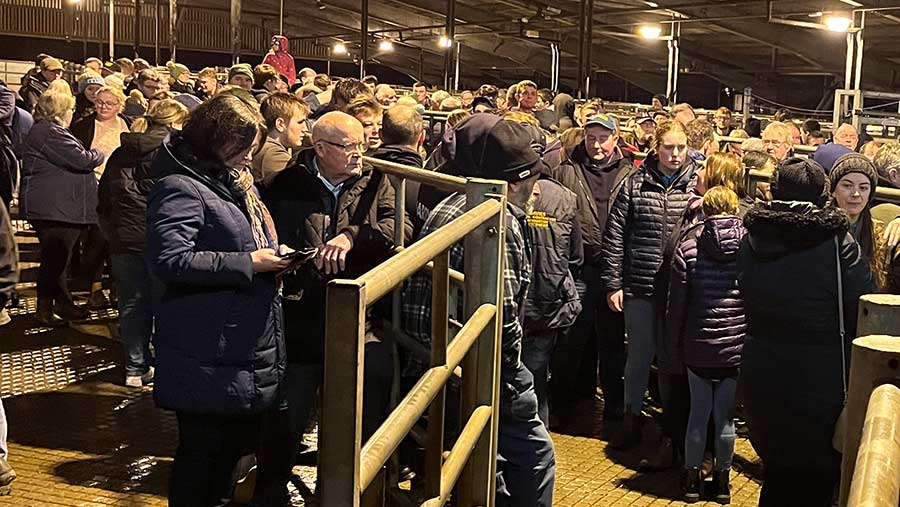Editor’s View: Fine job so far by Welsh protest organisers
 © Debbie James
© Debbie James Last week (8 February), an estimated 3,000 people gathered in Carmarthen Market to say: “Digon yw digon. Enough is enough”.
It followed a meeting in Welshpool on 1 February with 1,000 people. These are actions of people who feel they are almost in last-resort territory.
They feel the government’s policy choices are a direct attack on their ability to hand a healthy business on to their heirs – a very powerful motivator that will not be easily allayed.
See also: Welsh farmers use coffin to warn of death of industry at demo
Much has already been reported in Farmers Weekly on the three pillars of grievance which underpin this anger. First, the lack of progress on tackling bovine TB.
Second, the forthcoming implementation of a countrywide nitrate vulnerable zone. And third, the shape of the proposed Sustainable Farming Scheme.
Each is an important issue in its own right, but to go delving too far into the detail of any of them in search of why farmers are acting in this way would be a mistake.
It is the cumulative impact that has folk despairing. Farmers can only be pushed so far without pushing back.
As Kate Miles of agricultural mental health charity DPJ Foundation so powerfully said at the meeting, Welsh food producers currently feel like a sodden sponge – they have no capacity to absorb any more challenges.
Indeed, the charity is seeing a huge uptick in those seeking help. Yet I came away from the meeting feeling remarkably hopeful.
It is difficult to imagine how last week’s meeting organisers could have done a better job at harnessing the anger in a responsible, practical way.
The meeting was organised by farmers, led by farmers and only farmers were permitted to speak following the presentation.
They are still seeking to work with the unions that have laid so much of the groundwork in expressing the shortcomings in all of the above policies – but so far have not been adequately heeded.
And while the speakers – from across the supply chain – put over their points with passion, there was little knee-jerk anger on display, but rather a steely determination to make their voices heard.
The combined impact of this will ensure that politicians cannot dismiss this movement as an easily ignored rabble. It has earned the right to be heard and negotiated with at the highest level.
If not, then the modest-sized tractor demonstrations that happened outside rural affairs secretary Lesley Griffiths’ office this week may just be the beginning of something much larger.

